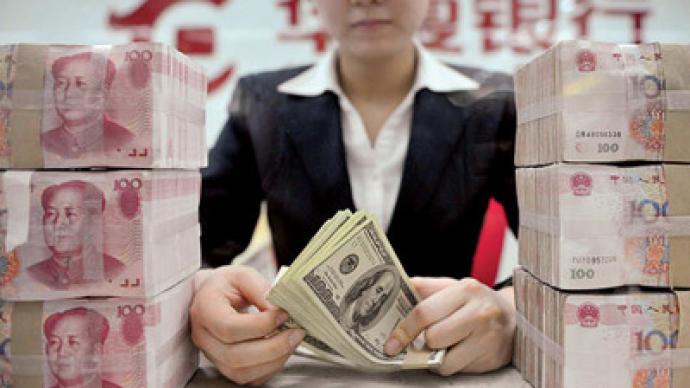China not a currency manipulator

The US Treasury opted not to call China a currency manipulator, a turn from past allegations. The Obama administration did however say the Chinese Yuan was undervalued.
The Treasury said it believes the Chinese currency should rise much faster, but fell short of calling the Chinese government currency manipulators, citing a lack of evidence. The recent statements based on a new congressional report have sparked cries by lawmakers for legislation aimed at curbing the Chinese currency, including proposed legislation to force China to revalue the Yuan.This follows numerous calls by US Treasury Secretary Timothy Geithner for China to allow it’s currency to rise in order to sustain global growth. Economist Max Fraad Wolff from The New School in New York explained the finding Chian is undervaluing its currency is not surprising, nor is it surprising there is a lack of evidence to accuse China of manipulation. He also pointed out the report was delayed so it did not conflict with the recent visit of Chinese President Hu Jintao. “It would set in motion a series of penalties and a serious of very difficult negotiations were we to actually officially label the Chinese currency manipulators,” he explained. Nevertheless, many in the US still view China as a currency manipulator.Wolff said there is a public perception in the US which sees Chain in a negative light, which pushes Congressional Representatives and Senators to echo those concerns in the legislature. On the other hand, the small business community in the US has an invested interest in positive US-China relations.“The middle class is dying here,” he commented. “Xenophobia and fear of loss of global position is very really across the American political spectrum and really across the United States from New York to California.” One proposal by is to introduce legislation to grant the US Commerce Department the ability to treat undervalued currencies as subsidies under US trade law. Doing so would allow US companies and the government to use retaliatory measures against Chinese currency policy. Such measures could include placing taxes on Chinese imports, citing that Chinese policy has unfairly disadvantaged American producers. The blame falls on China, when in fact it is American businesses and corporations who are choosing to send jobs oversees and shrink American their workforce. Corporations seek profits and what is best for the shareholders and corporation’s future, Wolff explained. Jobs leave the US and go where companies can better profit. Jobs do not simply shift from the US to China. When China becomes too expensive, the jobs will move from there to elsewhere, as well. “If they [China] raise the value of currency, we won’t get those jobs back in the United States, they will go to some other third developing country; not the US, not Chin but another country where the wages are lower or the currency is weaker,” he pointed out.














